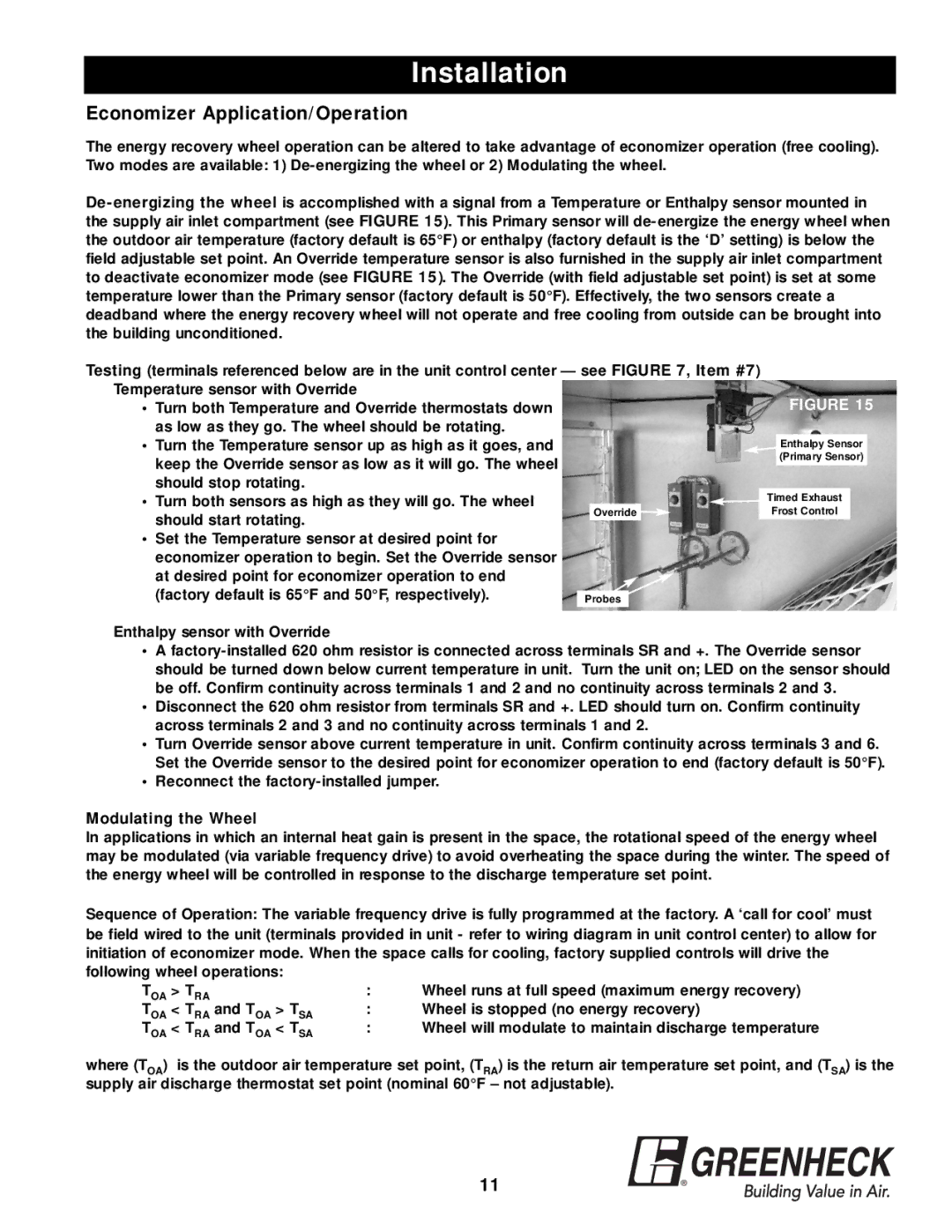APEX-200 specifications
The Greenheck Fan APEX-200 is a cutting-edge ventilation solution designed to meet the demands of modern commercial and industrial applications. Engineered with the latest technologies and featuring advanced design characteristics, the APEX-200 stands out for its efficiency, durability, and performance.One of the prominent features of the APEX-200 is its energy-efficient operation. The unit is equipped with high-efficiency motors that not only reduce energy consumption but also provide optimal airflow, making it an ideal choice for organizations looking to lower their operational costs while maintaining superior performance. The APEX-200’s ability to operate at low sound levels adds to its appeal, allowing it to be installed in noise-sensitive environments without disturbing occupants.
The APEX-200 incorporates Greenheck's patented Aerodynamic Technology, which enhances airflow and minimizes turbulence. This technology ensures that the fan operates smoothly and efficiently, contributing to the overall effectiveness of the ventilation system. The innovative design of the fan blade and housing also plays a crucial role in maximizing performance while minimizing energy loss.
Durability is a key characteristic of the APEX-200. Constructed from high-quality materials, this fan is designed to withstand the rigors of demanding environments. The unit is also built to resist corrosion, ensuring longevity and reducing maintenance needs. This durability makes the APEX-200 suitable for a variety of applications, including manufacturing facilities, warehouses, and commercial kitchens.
Another significant aspect of the APEX-200 is its versatility. The fan is available in various sizes and configurations, allowing it to be tailored to specific project requirements. This flexibility makes it suitable for different airflow and pressure needs, ensuring optimal performance in diverse settings.
The APEX-200 also features advanced controls and monitoring capabilities. These systems can be integrated with building management systems to provide real-time data and insights into operational performance. Such features enhance user convenience and help facility managers optimize energy usage.
In conclusion, the Greenheck Fan APEX-200 is a sophisticated, reliable, and efficient solution for modern ventilation requirements. Its advanced technologies, high-efficiency operation, and durable construction make it an excellent choice for a wide range of applications, ensuring that it not only meets but exceeds the expectations of users in various industries.

